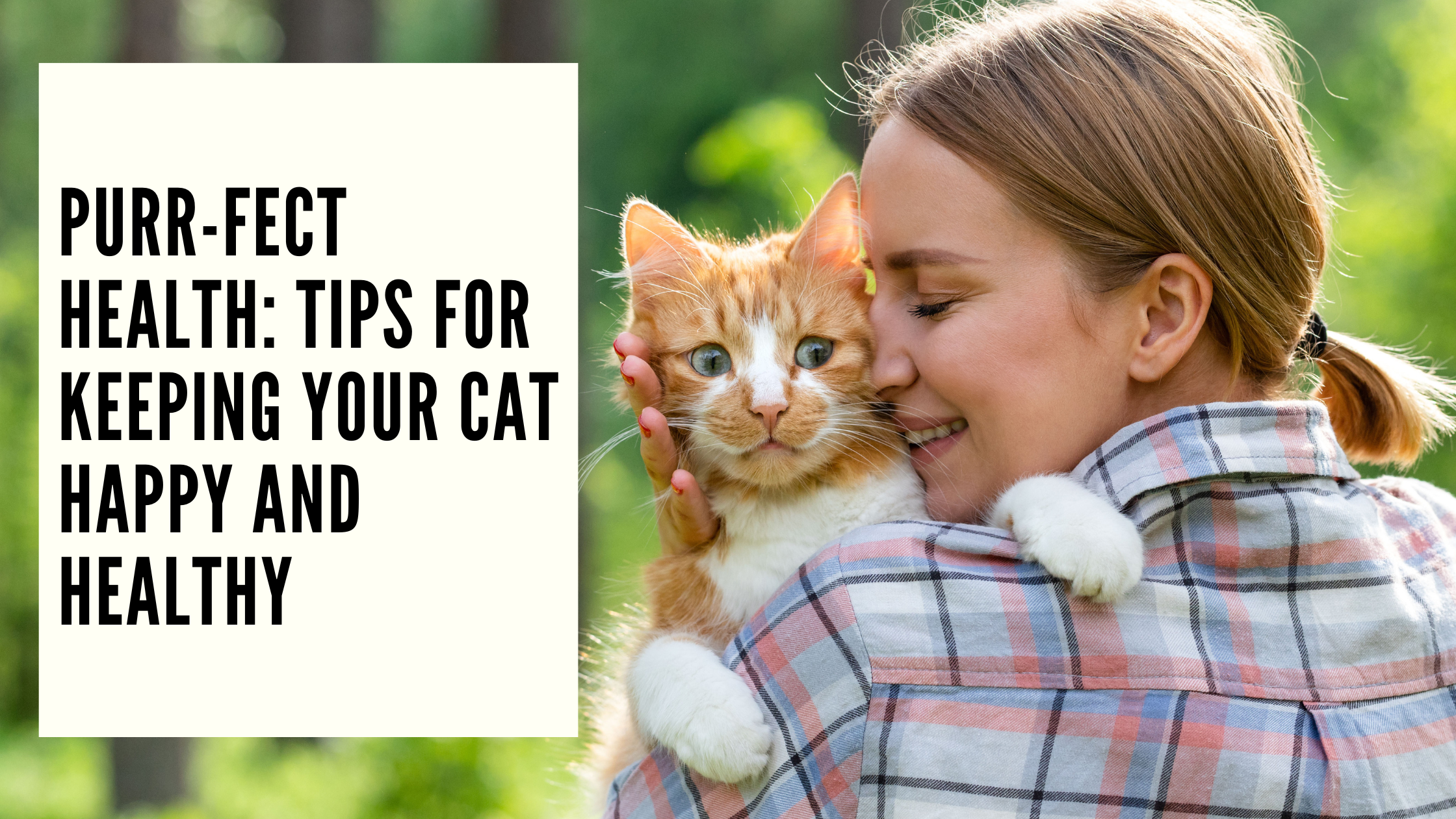Purr-fect Health: Tips for Keeping Your Cat Happy and Healthy
Introduction:
Cats are beloved members of our families, offering companionship, comfort, and endless entertainment. As responsible pet owners, it’s our duty to ensure they lead healthy and fulfilling lives. From nutrition to mental stimulation, grooming to veterinary care, there are numerous ways to promote your feline friend’s well-being.
Understanding the importance of cat health
Caring for a cat involves more than just providing food and shelter. It requires a commitment to their physical and emotional well-being. By prioritizing preventive care and making informed choices, you can help your cat live a long, happy life.
Nutrition and Diet
One of the cornerstones of good health is a balanced diet. When choosing food for your cat, opt for high-quality options that provide essential nutrients. Avoid overfeeding and monitor your cat’s weight to prevent obesity, which can lead to various health problems.
Exercise and Mental Stimulation
Cats are natural hunters and need opportunities to engage in physical activity and mental stimulation. Provide toys, scratching posts, and interactive play sessions to keep your cat entertained and mentally sharp.
Regular Veterinary Check-ups
Routine vet visits are crucial for detecting potential health issues early and ensuring your cat’s vaccinations are up to date. Your veterinarian can also offer guidance on preventive medications and parasite control.
Grooming and Hygiene
Regular grooming helps keep your cat’s coat shiny and free of mats, reduces shedding, and prevents hairballs. Additionally, dental care is essential for maintaining your cat’s oral health and preventing dental disease.
Creating a Safe Environment
Cat-proofing your home is essential to prevent accidents and injuries. Be mindful of potential hazards such as toxic plants, electrical cords, and open windows. Indoor cats should have access to stimulating environments with places to climb, hide, and explore.
Behavioral Health
Understanding your cat’s behavior can help you address issues such as litter box avoidance, aggression, and anxiety. Provide outlets for natural behaviors like scratching and hunting, and establish routines to help your cat feel secure.
Recognizing Signs of Illness
Cats are masters at hiding signs of illness, so it’s essential to be vigilant for subtle changes in behavior or appearance. Common signs of illness include lethargy, changes in appetite, vomiting, and diarrhea. If you notice any concerning symptoms, contact your veterinarian promptly.
Special Considerations for Senior Cats
As cats age, they may require special care to manage chronic conditions such as arthritis, kidney disease, and dental problems. Regular vet check-ups and adjustments to their diet and lifestyle can help senior cats stay comfortable and healthy.
Holistic Approaches to Cat Health
In addition to traditional veterinary care, many cat owners explore holistic therapies such as acupuncture, massage, and herbal remedies. While these approaches may not replace conventional treatments, they can complement them and provide additional support for your cat’s well-being.
The Importance of Mental Health
Cats can experience stress and anxiety, especially in multi-cat households or when faced with changes in their environment. Providing a calm, predictable routine and plenty of opportunities for relaxation can help reduce your cat’s stress levels and promote emotional well-being.
You May Also Like : Pet Grooming & Mental Health
Socialization and Interaction
Cats are social creatures and benefit from regular interaction with their human companions. Take time to play with your cat, engage in grooming sessions, and provide affectionate touch to strengthen your bond and promote a sense of security.
Traveling with Your Cat
Traveling with a cat can be stressful for both you and your pet, but with careful planning and preparation, it can be a positive experience. Invest in a sturdy carrier, acclimate your cat to car rides gradually, and bring familiar items like bedding and toys to help them feel more comfortable.
Community Resources and Support
Joining online forums and local cat clubs can provide valuable support and advice from fellow cat owners. These communities are excellent resources for sharing experiences, asking questions, and staying informed about the latest developments in cat health care.
Conclusion
Maintaining your cat’s health requires a multifaceted approach that includes proper nutrition, regular veterinary care, and attention to their physical and emotional needs. By prioritizing preventive care and staying attuned to your cat’s behavior and well-being, you can ensure they lead happy, healthy lives.
FAQs
1. How often should I take my cat to the vet for check-ups?
Generally, cats should have at least one wellness exam per year, but older cats or those with health issues may need more frequent visits.
2. What are some signs that my cat may be stressed?
Signs of stress in cats can include hiding, excessive grooming, changes in appetite, and aggressive behavior.
3. What should I do if my cat stops using the litter box?
Litter box avoidance can be caused by various factors, including medical issues, stress, or dissatisfaction with the litter box setup. Consult your vet to rule out any underlying health problems and address any environmental issues that may be causing the problem.
4. How can I help my cat adjust to a new home?
Moving to a new home can be stressful for cats. Provide a quiet, safe space for your cat to explore at their own pace, and gradually introduce them to the rest of the house. Offer plenty of affection and reassurance to help them feel secure in their new environment.
5. Are there any natural remedies I can use to calm my cat’s anxiety?
Some cat owners find that products containing pheromones or herbal supplements can help reduce anxiety in cats. However, it’s essential to consult with your vet before trying any new treatments to ensure they are safe and appropriate for your cat.

